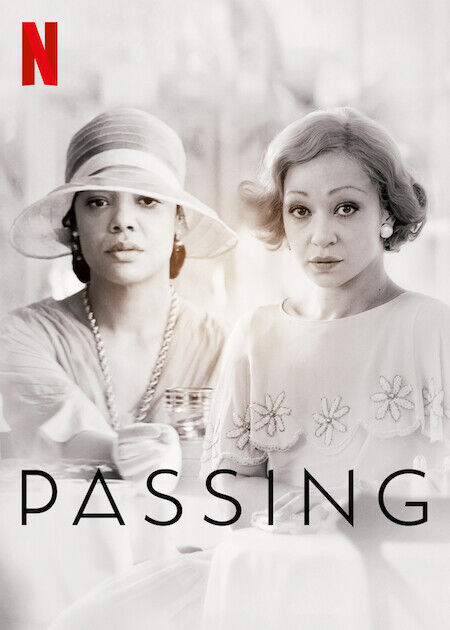Depending on your personal family history, a story like the one told in the 2021 film Passing may not be too eye-opening.
Based on the 1929 Nella Larsen novel of the same name, Passing is the directorial debut of British actor Rebecca Hall. Hall also adapted the screenplay. Passing premiered at the 2021 Sundance Film Festival.
Synopsis
It tells the story of Clare Redfield (Ruth Negga) and Irene Bellew (Tessa Thompson), former schoolmates who meet by chance on a sweltering day in New York City. They proceed to quickly rekindle their friendship. But with many years apart, their lives are on very divergent paths. As the story continues, the women begin to spiral, engaging in unhealthy and risky behaviors that may very well lead to tragic consequences.
To proclaim that Clare and Irene are two sides of the same coin oversimplifies the complexities of their relationship – not just to each other but to the world around them. Clare’s journey reawakens her desire to “connect” with her past (black identity). Further complicating matters is the fact that she is married to a straight-up racist. Side note: Alexander Skarsgard seems to have a knack for playing these less-than-savory characters quite well – just saying.
The reunion with Irene seems to awaken Clare’s desire to reconnect to her ‘blackness.’ However, the actions and intent are hard to decipher. While it is clear she misses being her true, authentic self, she is doing so under the guise of her passing persona.
Irene’s journey is equally complicated. Although she has decided not to fully pass, the opening of the film gives away that she is taking advantage of her physical appearance and passing. Of course, this is the moment she ironically runs into her old school friend. Her discomfort at discussing racial issues with her husband Brian (André Holland) and children is quite pronounced – as is her treatment of her black maid Zulena (Ashley Ware Jenkins). While a member of the black middle class having black “help” is not uncommon, it does speak to a classism/colorism/social order mindset that Irene seems fully willing to accept.
A Standout Scene
One scene, in particular, stands out in my mind. Irene arrives home to find Clare in the backyard with Zulena. “Zu” returns into the house, leaving Irene and Clare alone. As they talk, there is a moment where Irene covers up Clare’s legs with a shawl. It was very subtle, but quite a clear action – it was a means of protecting Clare from browning. On one hand, this is Irene protecting Clare from herself and any revelation of her true background to her husband. But also, and perhaps a little sadder, is the fact that Irene, while identifying as black herself, still has some degree of internalized disgust at her own blackness (can’t get TOO dark).
Solid Performances Sell the Story
The audience’s response to the aforementioned and other scenes is highly dependent on the lead actors delivering solid, believable performances. Negga and Thompson’s tone and delivery are on the money for the period setting of the film, without eliminating the emotional and realistic undercurrent of what is being portrayed on screen.
Artistic Touches Also Help
As a director, Hall’s artistic choices such as shooting in black and white and using a 4:3 aspect ratio add a sense of atmosphere. The aspect ratio in particular evoked a sense of claustrophobia to me. As I watched the film, I found myself with a foreboding dread, just waiting for the other shoe to drop. You just do not know exactly what you will find when it happens.
Production Design also plays a key role in this feeling. A lot of time is spent in interior spaces.
A Mild Criticism
One might have some reservations with the notion of Passing playing out the narrative trope of the “tragic mulatta.” For me, I went into the film knowing the basic framing of the story, based on my prior knowledge of the source material. But it is understandable – the novel is a product of its time. I am not sure how a filmmaker can avoid telling the story authentically without including these elements of both Irene and Clare’s journeys.
Conclusion
Although I haven’t read the official press notes, I did take a look at the New York Times Magazine feature about Rebecca Hall. In reading this piece as a companion to her work product projected on the screen, Passing truly feels like quite a personal project for her and her search for a deeper understanding of identity and what it means.
You can watch Passing now on Netflix.


Leave a Reply